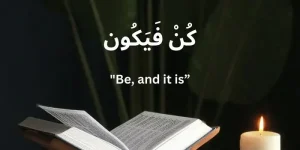Learn Quran, Hadith & Masnoon Duas

Daily Masnoon Dua’s
Introduction
In Islam, there are three essential elements that guide believers in their faith and actions: the Quran, Masnoon Duas, and Hadith. These serve as foundational pillars, providing wisdom, guidance, and spiritual nourishment to millions of Muslims around the world.
The Quran: A Divine Guide
The Quran is the holy book of Islam, believed by Muslims to be the direct word of God as revealed to the Prophet Muhammad (peace be upon him) through the Angel Gabriel over a period of 23 years. It contains 114 chapters (Surahs) covering various aspects of life, from theology to morality and spirituality.
Key Teachings of the Quran
The Quran teaches Muslims about faith, compassion, justice, humility, and patience. It guides them on how to live a righteous life, treat others with kindness, and worship Allah.
Why the Quran Matters?
For Muslims, the Quran is more than just a book; it’s a guide for life. They recite it, memorize it, and reflect on its verses to draw closer to Allah and understand His will.
Masnoon Duas: Prayers for Every Occasion
Masnoon Duas are special prayers taught by the Prophet Muhammad (peace be upon him) for various situations and activities. These supplications cover everything from waking up in the morning to going to bed at night, expressing gratitude, seeking forgiveness, and asking for protection.
The Importance of Masnoon Duas
By reciting Masnoon Duas regularly, Muslims express gratitude for blessings, seek forgiveness for mistakes, and ask for Allah’s help in times of need. These prayers foster a deeper connection with the Creator and mindfulness in daily life.
Hadith: Preserving the Prophet’s Legacy
Hadith are the recorded sayings, actions, and approvals of the Prophet Muhammad (peace be upon him). They offer insights into his character, conduct, and practical application of Quranic teachings in everyday life.
Understanding Hadith
Hadith provide detailed guidance on worship, ethics, jurisprudence, and interpersonal relations. They serve as a supplement to the Quran, enriching the understanding of Islamic teachings and providing a practical example for believers to follow.
Types of Hadith:
Hadith, the recorded sayings, actions, and approvals of the Prophet Muhammad (peace be upon him), are classified into various types based on their authenticity, content, and transmission. These classifications help Muslims discern the reliability and relevance of each tradition, guiding them in matters of faith, practice, and jurisprudence. Here are the main types of Hadith:
1. Sahih (Authentic) Hadith:
Sahih Hadith are the most reliable and trustworthy traditions, characterized by a rigorous chain of narrators (isnad) and impeccable content. Scholars of Hadith meticulously scrutinize the reliability of each narrator to ensure the integrity of the tradition. The most esteemed collections of Sahih Hadith include Sahih al-Bukhari and Sahih Muslim, which enjoy widespread acceptance among scholars and practitioners alike.
2. Hasan (Good) Hadith:
Hasan Hadith are deemed reliable, although they may not meet the stringent criteria of authenticity required for Sahih status. While the chain of narrators may not be as impeccable, Hasan Hadith are considered acceptable for deriving legal rulings and moral guidance. These traditions provide valuable insights into the Prophet’s teachings and actions, contributing to the understanding of Islam’s ethical and jurisprudential framework.
3. Da’if (Weak) Hadith:
Da’if Hadith are deemed less reliable due to weaknesses in their chain of transmission or content. These weaknesses may include unreliable narrators, missing links in the chain, or inconsistencies in the text. While Da’if Hadith are not considered suitable for deriving legal rulings or establishing beliefs, they may still contain beneficial moral or historical information. Scholars caution against relying solely on Da’if Hadith for matters of faith and practice, emphasizing the importance of verifying their authenticity and context.
4. Mawdu’ (Fabricated) Hadith:
Mawdu’ Hadith are outright fabrications attributed to the Prophet Muhammad (peace be upon him) or his companions. These traditions were concocted for various reasons, such as promoting sectarian agendas, advancing personal interests, or misrepresenting Islamic teachings. Scholars categorically reject Mawdu’ Hadith as false and warn against their dissemination or inclusion in religious discourse. It is essential for Muslims to exercise caution and discernment when encountering Hadith to avoid being misled by fabricated traditions.
5. Mutawatir (Consecutive) Hadith:
Mutawatir Hadith are traditions that have been narrated by such a large number of narrators at each level of the chain of transmission that their authenticity is beyond doubt. These Hadith provide the highest level of certainty and are often used as evidence in matters of belief and practice. Mutawatir Hadith play a crucial role in establishing foundational principles of Islam and are considered incontrovertible sources of guidance for Muslims.
Conclusion:
In Islam, the Quran, Masnoon Duas, and Hadith form the core of faith and practice. By studying, internalizing, and embodying their teachings, Muslims seek to live according to the values of Islam and emulate the example of the Prophet Muhammad (peace be upon him). In doing so, they find strength, guidance, and fulfillment in their spiritual journey.













